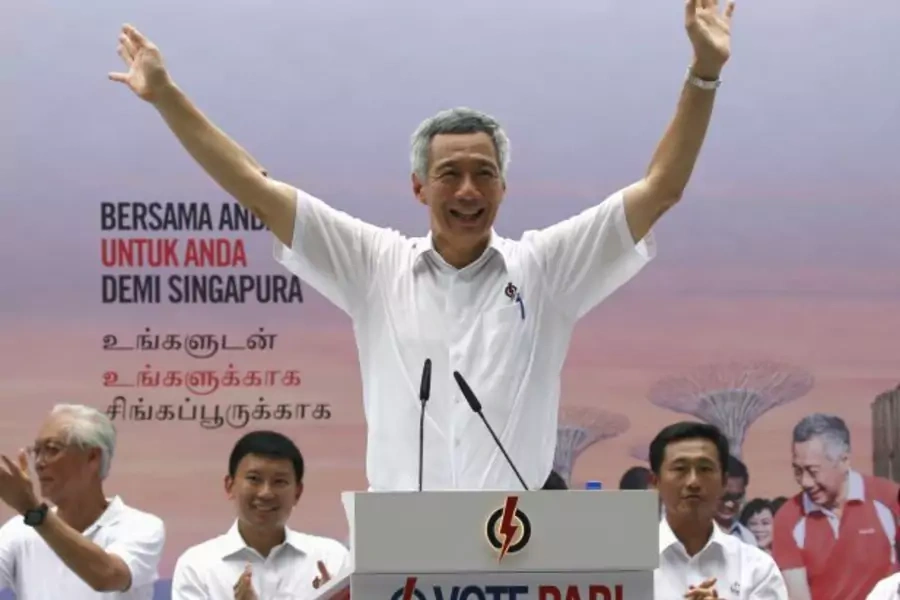Singapore’s General Election: More Continuity than Change

More on:
In advance of Singapore’s general elections on September 11, both of the major parties contesting the poll argue that this election will be definitive, even historic. At a press conference on September 1, Prime Minister Lee Hsien Loong of the People’s Action Party (PAP), which has ruled Singapore since the country was formed five decades ago, told reporters, "The country is at a turning point. Question is, in what direction do we now go?" Sylvia Lim, one of the leaders of the Workers Party that comprises the main opposition party (there are also other small opposition parties such as the Singapore Democratic Party), also says the election will be a turning point.
In some ways, Election Day will indeed be historic. For one, it is the first election in Singapore’s independent history in which founding father Lee Kuan Yew will not be up for a seat in Parliament. Lee, father of Lee Hsien Loong, died in March, prompting an outpouring of Singaporean emotion. Thousands of Singaporeans waited in long lines in the brutally hot sun to pay respects to the late Singaporean founding father. The swell of emotion over Lee’s death probably is one reason why the PAP, which as the ruling party can call elections anytime within a five year period, called this snap general election for September. The PAP likely hopes that some of the admiration for Lee Kuan Yew will translate into backing for the PAP at the polls.
In addition, Singaporeans will go to the polls to vote in a truly contested election, which was not always the case in the city-state’s history. For decades the PAP ran essentially unopposed. But in the last election, held in 2011, the PAP took its lowest share of the popular vote in Singapore’s history. The opposition also for the first time won a Group Member Constituency---an area in which four to six people represent the constituency, rather than a single member---for the first time in Singapore’s history. The groundswell of opposition support clearly worried the PAP, and after the 2011 elections Prime Minister Lee Hsien Loong launched what the government called a “national conversation” to better understand to Singaporeans’ concerns---concern about Singapore’s high rate of immigration, the perceived lack of a social welfare net for older Singaporeans, and high inequality in the city-state.
Yet in reality the September election will bring mostly consistency in economic, social, and foreign policy, no matter which party triumphs. Over the past four years, the PAP has indeed co-opted many opposition issues, blurring the lines between it and the Workers Party by adopting new restrictions on immigration, and by increasing state support for elderly Singaporeans. This month, the government announced it would increase the number of citizens who could receive state housing. At the same time, the Workers Party has filled its ranks of candidates and advisors with many former PAP supporters and politicians. As a result, many policy positions held by the Workers Party are not radically different from those of the PAP.
For more on my analysis of the upcoming Singapore election, see my new piece in World Politics Review.
More on:
 Online Store
Online Store